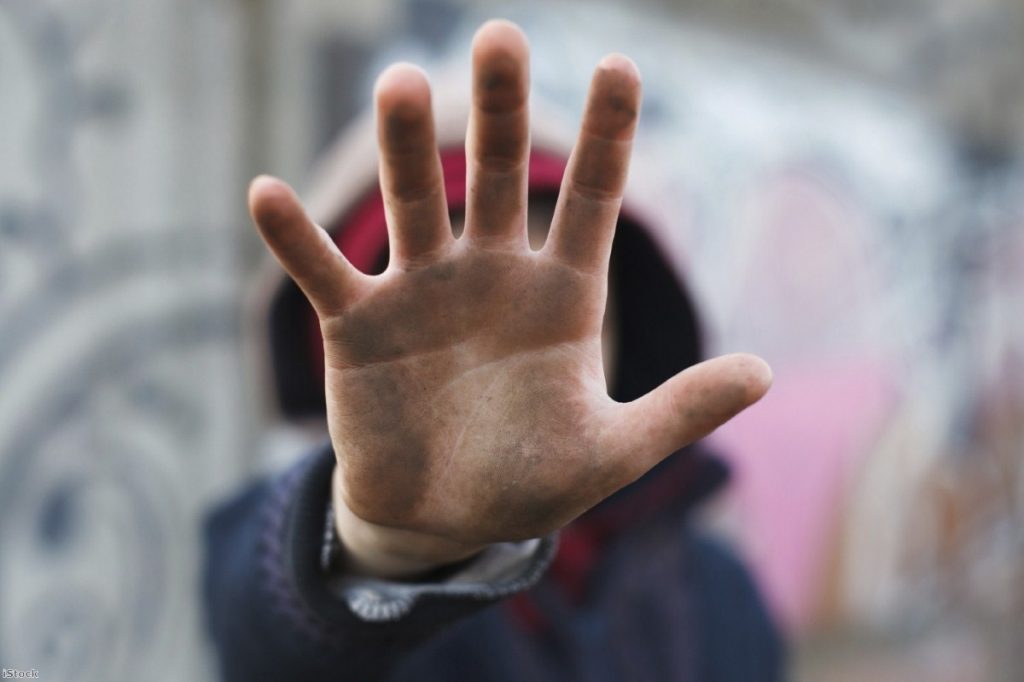Warning: This article contains graphic descriptions of sexual assault and child abuse
The Brexit referendum saw a lot of talk of Britain emulating Australia’s points-based immigration system, but not so much about their offshore asylum system. For good reason. Today's Nauru files, released by the Guardian, paint a picture of abuse, child sexual assault and abject moral horror.
Over half of the 2,000 leaked incidence reports, all from the detention camp for asylum seekers on the Pacific island of Nauru, concerned children, even though they make up just 18% of those kept there.
Some of the behaviour displayed by children in the report suggests a long history of abuse occurring in the camp – or at the very least trauma from sexual abuse which has not been addressed since the children reached it.


One child under the age of ten undressed and invited a group of adults to insert their fingers into her vagina. Another gestured to it and said a male asylum seeker had “cut her from under". One teacher reported that a young classroom helper had said she was granted two extra minutes in the shower if the security officer was able to watch her.
In total, seven of the reports document sexual assault of children, 59 document assault against children, 30 of self-harm involving children and 159 of threatened self-harm involving children.
This is what happens when you take the poorest, most desperate people in the world and put them out of sight and out of mind.
Moving your immigration system offshore has been a favoured tactic of western governments trying to placate public anger over the issue. Australia sets up offshore processing centres, we disconnect the legal system and move it to the claimant's home country. Or worse, we just leave the problem for others to deal with.
Take Calais. Instead of processing the asylum seekers in the Jungle camp, we leave them there to live in squalor. And there again the same godawful stories of child abuse and rape emerge.

One hundred and twenty-nine children went missing when the southern section of the Jungle was demolished. It was predictable. The French authorities hadn't registered the people in the camp, they hadn't provided alternative accommodation for minors during the evictions, they hadn't monitored or checked up on them at all. Out of sight is out of mind. Now those 129 children join the 10,000 unaccompanied child asylum seekers lost in Europe in the last two years. Where are they now? Sold as sex slaves? Destitute on the street? Dead? Back home? In Britain on the back of a lorry? No-one knows.
Around 150 children in those camps – all of them at risk of rape, abuse and sexual slavery – have relations in the UK. If the British government wanted to it could set up a programme to bring them over. But it doesn't. We leave them there, for charities to find and try to bring over. So they stay there, some as young as ten, traumatised by war, sleeping rough, at risk, faced with a grotesque and faceless bureaucratic system instead of an effort to help them.
But even in less serious cases, the pushing offshore of basic legal functions means immigrants are denied justice.
Last year this website reported how tens of thousands of foreign students were accused of committing fraud based on a scrap of hearsay evidence. Months later, the upper tribunal comprehensively demolished the Home Office case. Experts poured scorn on the evidence presented. Lawyers tore apart the flimsy bits of testimony provided by the department. It should have been a moment of victory for the tens of thousands of people accused of a crime they didn't commit.
Except for many of them, it was no such thing. The case didn't apply to them, even though the Home Office had relied on all the same evidence in their cases as the one which was demolished. These people were only entitled to an out-of-country appeal. They had to be deported on the basis of false claims before they could point out that the upper tribunal had ruled the claims to be false.
Out-of-country rights of appeal are no appeal at all. They change the material circumstance of the victim, they make the case financially ruinous, and they hopelessly imbalance the legal fight in the interests of the government.
"It's like being handicapped," Syed Waqar Hussain, one of the victims, says.
"Forcefully they're putting you back, making you a criminal, lowering your chances of winning. The financial burden alone… the fees from back home of getting a British lawyer are more than double. The solicitors say the chances are less, so they charge more.
"In country you can do cross-examination. Back home, you can't. The tribunals aren't accepting Skype video. Our case is related to the Home Office questioning whether we can speak English, but if we can't talk to the court. How can they judge us?"
The basic unfairness of this case helps explain why governments, from Australia to the UK, love offshoring immigration issues: they can stack the odds in their favour and push everything out of sight. No-one knows or cares that students have been wrongly accused of fraud when they're fighting their cases individually from Bangladesh. No-one knows or cares about the children going missing in the Calais Jungle. No-one knows or cares about the kids being brutalised in a detention centre on a tiny island, or how valid their asylum claim might be.
Out of sight, out of mind. They're not offshoring immigration. They're brushing immigrants under the carpet. And these are the consequences.
Ian Dunt is the editor of Politics.co.uk
The opinions in politics.co.uk's Comment and Analysis section are those of the author and are no reflection of the views of the website or its owners

